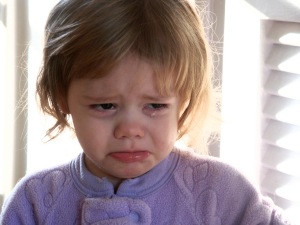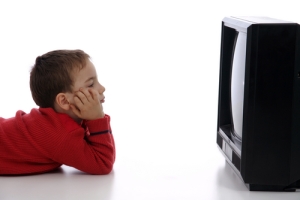Because it will make them smarter.
That was easy, wasn’t it? We can all go home now. It was also, however, wrong. I don’t read many business books, but one of the few that I have read is an unusual little creature called “Freakonomics”. You should come and pick up a copy. From Exclusive Books. In Clearwater. It might just change the way you see the world.
One of the fascinating little snippets in “Freakonomics” deals with the effect of books on children. A bunch of scientists examined the early test scores of a bunch of small children to see whether books had any effect on them. The results were a little surprising.
First, they isolated the results of the kids who were read to every night by their parents. Their scores were the same as those of the rest of the kids. Which is disappointing.
Then they isolated the results of the kids whose families had lots of books in their houses. Their test scores were higher than those of the rest of the kids. This is wonderful news. All you need to do to make your children smarter is to go out and buy a huge pile of books. And I know just where you can do that. Exclusive Books. In Clearwater. Just saying.
Or not. “Freakonomics” had a pretty sensible sounding explanation for why this was happening. Genetics. Smart people tend to have smart children. And smart people tend to have houses full of books. Not always, on either count, but often enough to bump up those test scores. Sadly enough, all those books weren’t magically increasing the intelligence of the children in their proximity.
This isn’t going well, is it? I’m trying to tell you why you should read to your children, and so far I’ve laid out some fairly good reasons why you shouldn’t bother. But.
A few years ago, a YouTube clip appeared on the interweb. A ten-year-old boy had gone to a funfair, where he had had his face painted like a zombie. He was being interviewed by a reporter using that breathlessly excited, palpably patronising tone reporters use when they are forced to interview little children.
“You’re looking good!” she cooed. “You just got an awesome facepaint job! What do you think?”
“I”, replied the redoubtable young man, staring off into the middle distance, “like turtles.”
Do you want to be responsible for making that guy? Or that girl? Do you really want to be to blame when one day, years from now, some poor sausage feels their heart sink as, shortly after sitting down for a formal dinner, they find their companion for the next four hours, the fruit of your loins, turning toward them and announcing “I bought a bucket today. I collect buckets.”?
Do you want to find yourself living out your own final years in Shady Acres, and have your only visitor in months lean slowly toward the bed to which you are confined and say, with all the energy and excitement of a resting caterpillar, “I dug a hole, Dad”?
I am not a scientist. I’m a bookseller. I have not read the research those scientists produced, and I don’t have the faintest idea of how you would go about testing the intelligence of small children. The little buggers can’t even drive, let alone read or write. I am, however, pretty sure those tests don’t cover things like the size of their worlds and breadth of their imaginations or whether they were interesting people or not.
And that’s the thing. You are not, as a parent, slowly and carefully building a super genius, just like you are not building a super-fast runner or a really good hitter of golf balls. Or at least I hope you aren’t. You’re making a person. A whole one. And then you are unleashing that person on the world. That sort of thing comes with a few responsibilities. Duties.
You need to make a person that the rest of us will like being around. A person who is witty and interesting and engaging, who makes four-hour formal dinners more bearable, not endless. A person who can talk about anything, with anyone, anywhere. A person whose world is wide enough and deep enough for the rest of us to dive into without cracking our heads on a shallow sheet of rock just below the surface.
The truth is that there is very little you can do to change someone’s intelligence. It’s in there already, like eye colour or whether their earlobes hang loose or are connected to their heads. There is, however, a great deal you can do to influence the way they use that intelligence. Things like vocabulary and general knowledge and mental agility and imagination might not matter much when it comes to early test scores, but they start to matter a great deal later on.
So how do you give your children a wide vocabulary and a broad general knowledge? And a vivid imagination and insight into the behaviour of others and an understanding of how the natural world works and an informed idea of politics and a well-developed sense of humour? Well that’s easy. And very, very hard. You turn them into readers. And how do you turn them into readers? It’s not an exact science, but reading to them in bed every night when they’re small is a pretty good place to start. And even if it doesn’t take, you will have at least started them out in life with the knowledge that there is more to their world than the dreck that they watch on the Disney Channel.
So that’s why you should read to your children. The big reason. One day, I might get stuck next to them at a formal dinner, and you don’t want to make me sad.
But there’s another reason. A smaller reason. A quieter one. But maybe, in its own subtle way, a more important one.
If you have slightly older children, you will already know this, but if you’re just starting out, I have some disconcerting news for you. You just gave birth to a monster. A werewolf.
A rather special kind of werewolf. One whose changes are triggered not by the phases of the moon, but by the onset of evening. As your kids get a little bit older, you are going to start noticing something. Every day, starting at round about four o’clock, your precious little angel is going to turn into the devil incarnate.
And stay that way until bedtime. Happy or sad, they will bounce off walls and run screaming down passages. Burglar bars will become ladders, furniture will become mountains to be scaled. The floor will turn to lava, and blankets and cushions will be ripped from the bottom of piles in your linen cupboard and strewn across the carpet to make it safe to walk on.
Supper will become a test of wills, an intricate game of chess with the pieces replaced by bowls of pudding and threats of no TV. As an opening move, your special little star will fall to their knees, weeping because they are so starving. And then they will refuse to eat.
The announcement of bath time will become a declaration of war, a pitched battle fought over bubblebath and wildly varying but very specific temperature requirements, followed shortly afterward by another pitched battle to get them out again. Being very, very careful to choose the right towel. And jammies.
Your children will become both hyper-clumsy and hyper-sensitive to pain (and God help you if you try to get them into the bath with anything even resembling an injury. Bathwater is like kryptonite for toddlers). And then you have to try and get the little buggers into bed…
Yup. The last few hours you spend with your child are, for a while at least, going to be harrowing. There will be hysteria. Sulking. Shouting. Shrieking. Tears will be shed, doors will be slammed, threats made, bags packed. And that’s just going to be you. Your children will be worse. You may not believe me, but this is gospel. Check with any parents out there. They may have different names for it; the witching hour, the daily hell, crazy hour, Armageddon, Ragnarock, but they will all recognise it.
Fear not! Like all things parenting, this too will pass. However…
Remember how, when you started out on the relationship that led you to this point, everyone told you never to go to bed angry? It gets said so much that it sounds a bit cheesy, but it’s good advice. And here’s the thing; it doesn’t just apply to you and your partner.
There’s a way to make things right. A way to calm the troubled soul of your little werewolves before you release them into sleep. A way for you to smile and talk and laugh a little, to draw a line under the ordeal you have just been through. A way to lie shoulder to shoulder under the warmth of the blankets and remember that you like each other, and that the thing with werewolves is that the teeth only come out when the moon is full.
Books. Read to your child. Every night. They will love it, and believe it or not, so will you, if you choose the right books. It will become a ceremony; the choosing of the story for the evening, getting the pillows arranged just so, using the right voices for the right characters…
Slowly, as you travel the well-worn paths of an old favourite or step cautiously into a new, unexplored world, the light of madness will be excorcised from your child’s eyes, and they will soften and unwind at your side. A small, tousled head will slowly fall onto your shoulder and a soft, warm hand will come to rest on your arm, and as you send them off into the sweet release of sleep, you will find that the devil has been driven out, and your sweet little angel is back, and the whole ordeal will be that much easier to deal with the next day.
And that’s not all. They will remember this. Forever. The time you spend doing this will become a part of their being, like the times you sing to them, or swing them around by their arms on the lawn, or run outside with them in the dark or in the rain. The stories you read them will become part of the magic of childhood they carry around into adulthood. No-one has ever said that about television.
So that’s about it then. Read to your children. Do it to make them better at being smart. Do it to make them interesting, and witty, and engaging. Do it to calm them, and to make them happy, and to fill their hearts with magical memories. Do it because books should be part of the fabric of childhood.
But most of all do it for me. You never know who you are going to sit next to at a formal dinner one day…











Fantastic post. Do it for me too!!!
LikeLike
Only if you promise to behave a little better in the evenings…
LikeLike
I have two signs up in the school library. One reads, “reading is not optional” and the other reads, “Want brains? Read!” Such an easy solution.
LikeLike
From what I remember about school, what you really need is a poster saying “Reading is forbidden! Any child caught using the library will be expelled”. They’ll be nipping around the fiction section like stoats, and spending their nights hidden behind the biography shelves.
LikeLike
Funny read… I love books and reading so much but just can’t seem to get my two year old to sit still for two seconds. Needless to say he must have his mothers genes, I have a new born too so haven’t given up 🙂
LikeLike
I wouldn’t give up on the two-year-old quite yet. It’s something they grow into, and you’re getting him used to the idea.
What worked for our son (who at ten still can’t sit still) was to find a subject that stirred his savage soul. Dinosaurs! He was particularly taken with the idea of a meteorite causing global extinction, which was a vaguely disconcerting thing to discuss with a three-year old…
LikeLike